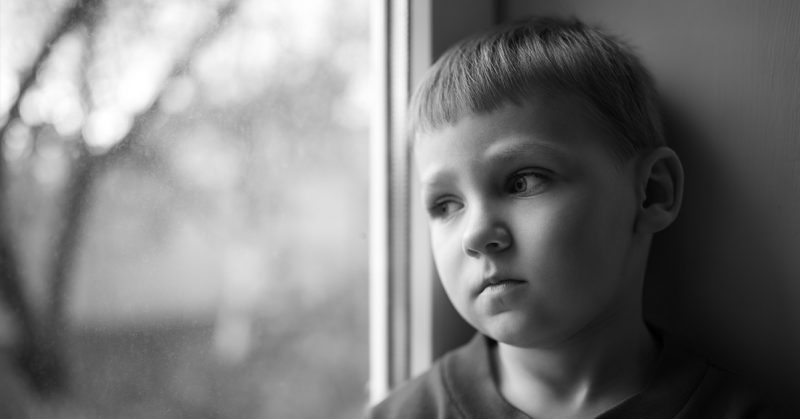The award goes to the parent who can go a day without yelling. Anyone?
Let’s admit it, kids drive us nuts sometimes, the same way we drove our parents crazy when were at that age. Almost every parent loses it now and then and may lash out at their kids with loaded words. However, the line between discipline and emotional abuse is a thinner one than we often assume. Regularly yelling at your kids, whether unintentionally or as a pre-planned form of discipline can cause serious mental damage that’s usually taken into adulthood. [1]
Some parents may believe that yelling or screaming when talking to their kids gives them an air of authority. However, there’s a huge difference between fear and respect, and children shouldn’t grow up to be afraid of the people who they are supposed to love and trust the most.
The most well-adjusted adults are often those who were treated with love and affection as children. Some people insist that treating a child with affection could spoil or make them unable to be responsible for themselves. We are all entitled to our own values and beliefs, but this is just plain wrong. It’s all about balance and inclusion. Parenting is one of the toughest jobs ever, but once you have kids, it becomes your responsibility to groom into self-reliant individuals while still teaching them love by practice.
Yelling is not a strategy for discipline, it’s a harmful release.
A 2014 study published in The Journal of Child Development reports that yelling has the same effect on a child as spanking or other painful physical punishments. It may cause mental health issues such as anxiety, depression, low self-esteem, chronic exhaustion, and stress.
According to Dr. Laura Markham, founder of Aha! Parenting and author of Peaceful Parent, yelling at a child would progressively alter the way their brains are wired during those formative stages.
“Let’s say during a soothing experience [the brain’s] neurotransmitters respond by sending out soothing biochemicals that we’re safe. That’s when a child is building neural pathways to calm down.” Dr. Markham explained. “The kid releases biochemicals that say fight, flight, or freeze. They may hit you. They may run away. Or they freeze and look like a deer in headlights. None of those are good for brain formation.”
This simply means that when you yell at your child, you are daring them to defend themselves. They would gradually learn to associate the sound of your voice with thoughts of fleeing from danger. Children who are often yelled at are at a higher risk of growing into dysfunctional adults. As they get older, they are likely to become insecure individuals with such serious mental fractures that depression and anxiety are often inevitable.
Also, while you frighten and scare them into shells, you are preparing your kids for yelling matches when they feel they can finally stand up to you. This may begin at a younger age than you’d ever have imagined.
“The power parents hold over young kids is absolute. To them, their folks are humans twice their size who provide things they need to live: Food, shelter, love. When that person they trust implicitly frightens them, it rocks their sense of security. And yes, it’s truly frightening for a child,” Dr. Markham said, explaining how children perceive their parents.
Talk to them with love and affection instead
Children become spoiled due to a lack of correction, not when they are corrected gently. We need to rewrite the narrative where parents being kind and gentle with their kids equates to a poor upbringing.
Several studies have proven that engaging your child in a calm and reasonable conversation is far more effective than yelling at them. [2] Instead of talking to your children and screaming at them, you can talk with them and have a normal conversation. This doesn’t mean that you’ll lose your authority as a parent. You can engage them gently but firmly, holding their attention and letting them know where they went wrong and how they can always do better.
In her research, Dr. Markham suggests that it is helpful for parents to incorporate humor in disciplining their children. “If the parent responds with a sense of humor, you still maintain your authority and keep them connected to you.”
Exceptions
Despite emphasizing the need for gentle interactions with our kids, Dr. Markham explains that situations may arise when you may need a louder tone to get your child’s attention. This is the only time where yelling is helpful (and when trying to get them away from danger).
“When you have kids hitting each other, like siblings, or there’s real danger,” she added.
Once you have you the child’s attention, you’d have to modulate your voice in several pitches form high to low until you’re conversing normally again.
No matter how badly they’ve behaved, don’t forget that they are still children and cannot comprehend things the way adults do. They are still grasping the concept of right and wrong, good and bad, and we have to be patient with them. Kids are more likely to remember what they were told during a calm correction than what they were yelled at for.
In the end, no parent out there is flawless or perfect, and your efforts are always significant. You can only continue to improve by keeping your actions and those of your kids in check.
References
- “Why You Should Stop Yelling at Your Kids.” The New York Times. Stephanie Marche. Retrieved June 23, 2020.
- “Calmer Voices, Calmer Kids.” Child Mind. Beth Arky. Retrieved June 23, 2020.
- “Effective discipline for children.” NCBI. Retrieved June 23, 2020.
- “Longitudinal Links Between Fathers’ and Mothers’ Harsh Verbal Discipline and Adolescents’ Conduct Problems and Depressive Symptoms.” SRCD. Wang & Kenny. Retrieved June 23, 2020.

